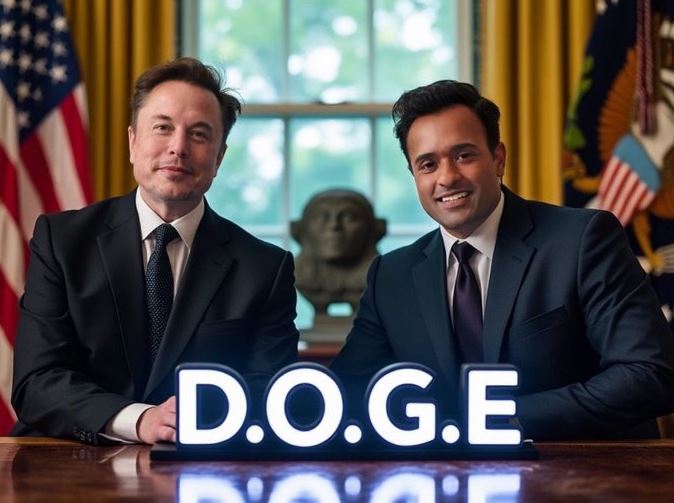They have begun hiring for the newly formed “Department of Government Efficiency,” but all applicants are required to meet one condition: they must be subscribed to X!
Trump hopes DOGE will restructure the $6.5 trillion federal government by co-leading what he believes to be the “Manhattan Project of our time.”
Answer
Elon Musk and Vivek Ramaswamy Kick Off Recruitment for ‘Department of Government Efficiency’
In an unprecedented move, Elon Musk and Vivek Ramaswamy have started the hiring process for the newly established “Department of Government Efficiency” (DOGE), a project under President-elect Donald Trump aimed at revolutionizing federal operations. The initiative seeks to streamline the $6.5 trillion U.S. federal government, with Trump likening it to the “Manhattan Project of our time.”
Subscription Required for Applicants
Interestingly, one peculiar requirement stands out among the qualifications for potential candidates: all applicants must be subscribers to X, the social media platform owned by Musk. This condition has sparked curiosity and debate about the integration of private sector practices into government efficiency initiatives.
Mission of DOGE
The Department of Government Efficiency’s primary objectives include slashing excess regulations, cutting wasteful expenditures, and restructuring federal agencies. Trump’s vision for DOGE reflects a significant overhaul of government bureaucracy, aiming to make federal operations more accountable and efficient.
Public Reaction
The announcement has elicited mixed reactions from the public and political analysts alike. While some applaud the innovative approach to government efficiency, others express concerns over potential conflicts of interest, especially given Musk’s extensive business ties with government contracts. Critics question whether this move might lead to preferential treatment for Musk’s enterprises or influence regulatory oversight.
Looking Ahead
As DOGE begins its recruitment, the focus will be on how this department plans to achieve its ambitious goals without formal government status, and what impact this might have on the broader political and economic landscape. The initiative’s success or failure could set a precedent for future government restructuring efforts in the U.S., making it a closely watched political experiment.



